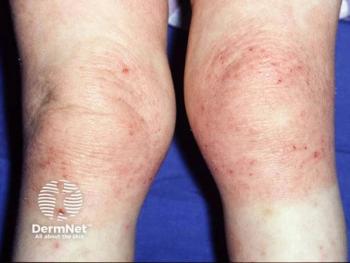
Expert Insights: Unmet Needs in Topical Treatment for Atopic Dermatitis
Linda Stein Gold, MD, and Michael Cameron, MD, FAAD, discuss the need for non-steroidal treatment options in atopic dermatitis management, driven by patient preferences. They highlight the challenges with previous oily options, which often caused tolerability and irritation issues, and how the approval of ruxolitinib cream addresses these concerns.
Episodes in this series

This is a video synopsis of a discussion involving Linda Stein Gold, MD, Director of Dermatology Research at Henry Ford Health in Detroit, Michigan, and Michael Cameron, MD, FAAD, a dermatologist based in New York City.
The discussion, titled "Beyond Steroids: Topical Dermatologic Efficacy and Patient-Centric Perspectives," delves into nonsteroidal treatments for atopic dermatitis (AD). Dr. Cameron highlights the demand for steroid-free options among patients, prompting the need for effective alternatives. Traditionally, available nonsteroidal options such as tacrolimus and pimecrolimus were limited by factors like greasiness and weaker efficacy.
The conversation focuses on the innovation brought by topical ruxolitinib cream, addressing the gap in AD treatment. Dr. Cameron emphasizes its anti-inflammatory properties, good tolerability profile, and efficacy, fulfilling patients' desires for steroid-free options. Phase two trials demonstrated comparable efficacy to mid-potency steroids without associated adverse effects, a significant advancement.
Moving into phase three, the efficacy of topical ruxolitinib cream becomes even more pronounced, with a notable separation from placebo in achieving skin clearance. Dr. Stein Gold underscores the rarity of such a substantial difference early in clinical trials, given the advanced design of vehicle formulations aiding skin barrier repair.
Overall, the discussion underscores the significance of topical ruxolitinib cream in the landscape of AD treatment, offering patients an effective and well-tolerated alternative to traditional steroid-based therapies.
Video synopsis is AI-generated and reviewed by Dermatology Times® editorial staff.
Newsletter
Like what you’re reading? Subscribe to Dermatology Times for weekly updates on therapies, innovations, and real-world practice tips.















